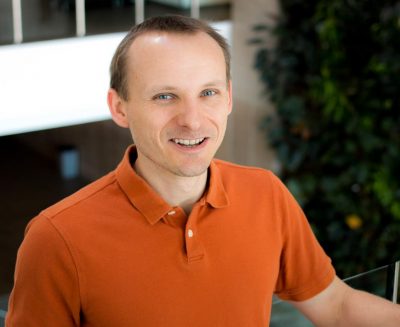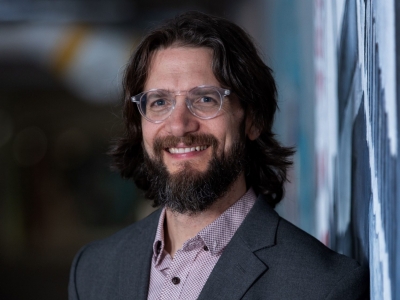 Radovan Vadovič is an assistant professor of Economics and the winner of a Canada Foundation for Innovation grant and an Ontario Small Infrastructure grant to build the region’s first experimental economics laboratory at Carleton University. It’s expected to be completed in 2016.
Radovan Vadovič is an assistant professor of Economics and the winner of a Canada Foundation for Innovation grant and an Ontario Small Infrastructure grant to build the region’s first experimental economics laboratory at Carleton University. It’s expected to be completed in 2016.
The Objective: To study how emotions and heuristics—rules of thumb—influence the economic decisions people make. One example is the marketing slogan that an engagement ring should equal two months’ salary.
The Methodology: Participants will play computer games designed by researchers to measure the effects of emotions and heuristics on their decisions. Consider a situation in which one participant is given $10 and has to choose whether to keep it or share it with others. By measuring the amount the participant passes to others, we can determine the importance they place on their own monetary gain. This simple experiment has been used in numerous variations to help us understand why people give to charities, for example, and how to design policies to induce more giving.
Vadovič’s lab has a few distinguishing features:
- All rules of the game are presented upfront and followed throughout.
- Participants will typically make decisions in complete privacy.
- Participants who make “good” economic decisions will be rewarded with higher monetary payments than others.
- All earnings are paid to participants upon completion of the experiment in cash.
The Hypothesis: We know from past research that people are more likely to rely on emotions or heuristics as their decisions become more complicated. For instance, they may choose an insurance policy in the middle of the list because in most situations the option at the top has too many features and the one at the bottom lacks features they may need. It’s a simple way to reason around a complicated problem, but marketers have been known to exploit it by making the middle choice more expensive.
The Outcomes: The outcomes of Vadovič’s experiments will shed light on how to structure and present information so that people can make more accurate decisions. For instance, a scheme could be designed that presents patients with accessible and balanced statistics on available treatment plans.
Quote: “With laboratories like this, economics is taking a step closer to physics—to scientific experimentation. These experiments will allow us to test a collection of theories and conjectures as to how human behaviour functions and dismiss those that are falsified by the data.”
Friday, September 9, 2016 in Department of Economics, Economy, Field Notes, FPA Voices
Share: Twitter, Facebook



